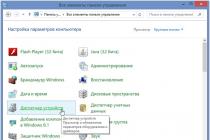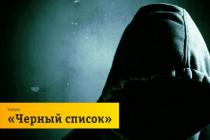From January 1, 2018, new rules for the use of instant messengers will come into effect. All users will have to indicate their mobile phone number when registering and working with any programs in which it is possible to exchange messages. These are the requirements of the Federal Law "On Information, Information Technology and Information Protection". The amendments were initiated by the deputies of three factions at once - United Russia, Fair Russia and the Communist Party of the Russian Federation.
According to these changes, messengers will now have to:
Identify your users (that is, actually prohibit anonymous users from using the services)
Send socially important information by decision of the authorities
Our main goal is to protect citizens, taking into account the current situation, ”says Marina Mukabenova, a State Duma deputy from United Russia. - Terrorist groups can appear in such messengers and spam attacks can be carried out.
Messengers will have to block messages advertising terrorism, drugs and child pornography. And at the request of the authorities, disseminate socially significant information, for example, reports from the Ministry of Emergencies about an urgent deterioration in the weather.
What will change for users
Now you can register for the services by email. That is, in fact, impersonal. But many instant messengers have already introduced authorization via SMS. From time to time, companies check whether the user has changed the phone number - the user is prompted to enter his current number. After that, an SMS with a confirmation code or a link comes to him. From January 1, this authorization will become the rule for everyone.
Only users identified on the basis of a subscriber number and the corresponding agreement will be able to transmit instant messages, - explained the Prosecutor General of Russia Yuri Chaika.
Why does the state need it? In order to obtain on demand the personal data of the user, against whom, for example, an investigation is being carried out.
What problems are possible
1. "Messenger" is a vague concept. Technically, this definition - "information and communication service" - includes not only Telegram and others, but also chats on websites (for example, with an online consultant) and in games. It seems that Roskomnadzor will decide who is covered by the ban - according to his instructions, companies will have to bring their services in line with the new requirements.
2. A SIM card can be issued for "left" people.
Many SIM cards are sold in black, - Roman Romachev, general director of the R-Techno business intelligence agency, gives an example. - In any market, you can buy a phone number that is registered to a legal entity. And the police are not yet particularly struggling with this. This business must be suppressed, otherwise the terrorists will bypass the ban.
In addition, fraudsters can also use "dead souls" - to issue a SIM card for the person who will never use it (for example, for a lonely old woman in the provinces or for a homeless person).
3. Change account when you move?
Even legal users can have problems.
Binding to a phone number is a rudiment, - says Evgeny Chereshnev, CEO of Biolink. - Firstly, the number is tied to the region - and these are additional problems with identification when moving. Secondly, it makes no sense for real criminals to use popular messengers - using open source technologies, anyone can create their own chat (meaning their own messenger - Ed.). Thirdly, it is not known what to do to foreigners who do not have Russian SIM cards and whose data are unknown to our operators. There is also a problem with the termination of numbers, when the number is not used for a long time, and it is transferred to the new owner. Having bought a new SIM card, the owner can receive along with it the entire load of accounts registered for it. Therefore, such blackish situations arise when, for example, a deceased person "shines" online in the messenger.
4. You can make a "dummy" number.
Today there are many services that allow you to create virtual phone numbers. You can even create a number for just 10 minutes, after which it will be destroyed. But this time is quite enough for any intruders to send many messages.
You can, of course, oblige these services to report to the state, transfer all data about each user. And if these are not Russian companies? There are already a lot of additional complications.
5. This is not a panacea for drug dealers and terrorists.
Messengers themselves, for example, the same Viber and Telegram, cannot read user correspondence and track whether there is something about drugs and terrorism.
There are two modes of communication: regular chats using client-server encryption, and secret chats using end-to-end encryption and protected from middleman attacks, explains Telegram. - In regular chats, messages are encrypted on the sender's side, pass through the server encrypted, and are decrypted on the recipient's side. That is, Telegram specialists see that two people are communicating, but do not know what these messages are about. In the secret chats mode, there is an additional option - visual keys that display encryption codes. Users can compare them and make sure that no one has intercepted their correspondence. In such chats, messages cannot be forwarded, they are stored only on the devices themselves, and are deleted from them after a certain time.
Who will be punished and how
Fine for individuals - from 3 to 5 thousand rubles
Officials - from 30 to 50 thousand
Legal entities - from 800 thousand to 1 million rubles.
Messengers can be blocked - temporarily, until violations are eliminated, or "for life."
But large services do not make sense to change encryption algorithms for the sake of Russian users. According to experts, the Russian audience of the same WhatsApp is no more than 2%. So it may be easier for companies to leave the Russian market than to change the code and equipment for the sake of lawmaking delights.
SAID
“The level of Telegram's cooperation with the authorities does not depend on jurisdiction and is based on the same principles everywhere. Unlike their Russian colleagues, the Indonesian government services did not require us to have access to personal correspondence.
All over the world, including Russia, Telegram processes requests for the removal of publicly available illegal content containing terrorism propaganda, child pornography, etc. At the same time, in no country do we give out personal data of users to government agencies.
Although a significant proportion of Telegram's audience comes from more conservative countries than Russia, only in Russia has Telegram been fined for not providing message encryption keys. This is the only such precedent in 4 years of Telegram's work in the global market. "
HOW DO THEM
Mandatory identification works in other countries of the world as well. For example, in China, local microblogging users are required to provide their government identification numbers when registering. International services such as Facebook or WhatsApp are formally prohibited, but they work there only through anonymizing applications. But since June 2017, a law has come into force in the PRC that prohibits them too.
Sweden has a similar ban on anonymity on the Internet. The local government introduced it back in 2011.
But the United States and Germany, on the contrary, defend the right to anonymity - at the level of legal proceedings.
BY THE WAY
The head of Roskomnadzor said that anonymity on the Internet does not exist
The head of Roskomnadzor, Alexander Zharov, said that there is no anonymity on the Internet. According to him, modern technologies make it possible to identify a person by various direct and indirect identifiers: voice, face, online behavior, regularly visited resources and geolocation ()
The Russians were banned from using messengers anonymously. The government has approved new rules, according to which now only those who bind them to a real number and verify their identity through an operator will be able to use instant messaging services. During the identification process, the messenger will send a request to the operator to find out if the subscriber is in the database. The operator will have 20 minutes to provide an answer. Each user will be assigned a unique code.
The implementation of the new legislation will require additional costs from operators, emphasizes the leading analyst of the Fintech Lab accelerator Sergey Vilyanov: “Operators will have to process millions of calls, and given that today each citizen has more than one SIM card in his hands, companies will have to constantly respond to these requests and create a load on your equipment. It turns out that everyone will have to write their full name, surname and patronymic when registering in the messenger. First of all, this is strange, it is not accepted in instant messengers. Secondly, what is it?
We take a user base - first names, surnames, patronymics, probably another date of birth will be required - and with our own hands we give this information to foreign companies.
After all, most of the instant messengers that are popular in Russia today are foreign developments. There is no practical benefit in this. "
According to Roskomnadzor, which proposed the bill, anonymous correspondence in messengers prevents law enforcement agencies from investigating crimes, and the new rules will supposedly be able to correct this. But Internet Ombudsman Dmitry Marinichev does not believe in this. According to him, this will not only not help the work of the police, but will also complicate corporate communication: “This is simply illegal, some kind of huge security hole. Roughly speaking, you have created some kind of platform and simply by searching and contacting telecom operators you can get the entire sample from databases with phone numbers, names and surnames of registered subscribers. This is a surreal situation. In addition, the issue remains open from the point of view of corporate communications. Who will identify the employee who uses corporate communications? They will not be able to install messengers at all, we will forbid business to communicate. I do not see, firstly, the point, and secondly, the technical and legal enforceability of this law.
Apart from damaging the reputation of the authorities, he will not be able to bring anything. "
If the user changes the phone number, then the identification will need to be repeated. And those who did not pass the test will not be able to send messages. But it is not clear how the new rules will work in practice, said Eldar Murtazin, a leading analyst at Mobile Research Group: “Today it is a complete utopia, because it is almost impossible to achieve this. In practice, we will face the fact that we will have a situation again, as with the ban on Telegram. The ban exists, but everyone uses the messenger. It's just that taxpayers' money will be released into the air, formally, violent activity will appear, and operators will be forced to "break" the Internet, which is ridiculous in itself. But to ensure that all this works in some kind of digestible form, it is impossible. De facto, all the most popular instant messengers are located outside of Russia. Just as Telegram does not comply with Russian legislation, so they will not be led by the government and do anything. "
Since January, a law has already been in effect in Russia, which provides for a fine for the refusal of instant messengers to identify users. For legal entities, it ranges from 800 thousand rubles. up to 1 million rubles.
Rosreestr locks: a complete list of blocked messengers
Several messengers have already been banned by Roskomnadzor. What and why - you will learn from this article.
Rumors that the government is going to ban instant messengers have been circulating for a long time. And the information is partly confirmed: systematic blockages began this spring. However, this "repression" is not as global as it might seem. A small number of programs fell under them, and even those have the opportunity to "rehabilitate".
List of messengers blocked by Roskomnadzor
Let's list the messengers banned in Russia:
- BlackBerry Messenger. Cross-platform application with a large subscriber base and wide functionality. Very similar to Viber, which also has the ability to create group chats: https://o-viber.ru/kak-sozdat-gruppu-v-vajbere.html.
- Imo. Initially a web service, then mobile and desktop versions were released. Two types of accounts: regular and business. Encrypted connection, third party protocols were disabled in 2014.
- Vchat. Audiovisual chat.
- Zello. Application - walkie-talkie. Communication is possible privately or through open channels. Cross-platform, desktop versions including. The Russian audience is about 400 thousand people.

There are also messengers banned in the Russian Federation, but then unblocked: WeChat is a cross-platform program owned by a Chinese company, but popular all over the world, including the Russian Federation; Line is a very popular (about 1 billion downloads) messenger with a built-in social network. Property of Naver Corporation, South Korea.
What are the bans on the activity of applications?
Any means of communication is a potential tool for fraudulent activities of any scale, broadcasting calls for illegal actions or extremist content. For example, during the protest wave in Turkey (2013), disgruntled citizens actively used Zello as a means of transmitting prohibited information bypassing censorship.
In this regard, the need arose: to exclude anonymous use of programs used to exchange text, voice and video messages; protecting the user's right not to receive information from unwanted sources; securing for the government of the Russian Federation the right to use instant messengers as a means of warning in case of emergencies, etc.
The essence of the law
This is a bill that imposes on messengers some obligations in relation to the government of the Russian Federation, as well as regulating the activities of such programs. Key points:
- Mandatory user identification. Registration in the application must be carried out with the indication of the phone number, which becomes the identifier of the person. The position is based on the fact that when buying a SIM card, we transfer our personal (passport) data to the telecom operator. The operator, in turn, according to a previously concluded agreement, provides information to the messenger.
- Possibility of blocking of unwanted contacts by users. It's about barring incoming calls and messages.
- Providing an opportunity for the authorities of the Russian Federation to send mailings through the messenger: warnings related to emergencies.
- Preventing the dissemination of illegal information using the application.
The companies that own messengers have only a few months left (until January 1, 2018) to bring the applications in line with the requirements stated in the draft law. And which messengers were banned in Russia, Roskomnadzor can restore, but also after making changes.
Image caption Not all messengers agree to cooperate with the Russian special services, but this puts them at risk of being blocked.
The Russian government has banned Internet messengers from disclosing any information about interaction with special services. Users of instant messengers who comply with Russian law will never know how often these services satisfy the FSB's curiosity.
Administrations of instant messengers (in the current law they are called organizers of the dissemination of information on the Internet, ORI) must ensure "non-disclosure of any information about specific facts and the content of such interaction to third parties," follows from the text of the government decree of January 18. The document was published on the official portal of legal information on Monday, January 22nd.
To transfer user data to special services, messengers must install special software and hardware. Which ones are not specified. By its decree, the Russian government banned the placement of these funds outside the country.
The decree directly concerns messengers that are registered in the register of ORI Roskomnadzor. These include Telegram, Agent Mail.ru, Chinese WeChat, Russian social networks VKontakte and Odnoklassniki.
Forbidden to be transparent
International IT companies report intelligence requests in transparency reports published twice a year. Thus, the latest Facebook report refers to the second half of 2016, reports from Google, Twitter and Microsoft - to the first half of 2017. Russian social networks VKontakte and Odnoklassniki do not publish transparency reports and refuse to provide them upon request.
The government has not determined the punishment for disclosing information about interaction with the special services, said Daryana Gryaznova, a lawyer with the human rights team 29.
"If the ORI refuses to obey these requirements, formally there are no compositions by which one can prosecute him - the Administrative Code establishes responsibility for disclosing information, access to which is limited by federal law, as well as for failure to fulfill obligations imposed by federal law (and here the subordinate act) ", - the lawyer notes.
Gryaznova recalls that in accordance with the law on operational-search activities, information about the forces, means, sources, methods, plans and results of such activities is a state secret.
"There is only one point - if the internal affairs bodies, the Federal Security Service and other bodies that carry out operational-search activities decide to read your correspondence, they will do it, and now they want to force the representatives of instant messengers not to report this to anyone," the lawyer sums up.
The government decree completely closes the transparency of law enforcement and any public control, says Sarkis Darbinyan, partner of the Digital Rights Center, lawyer in the field of cyber law.
"Projects such as Ranking Digital Rights examine reports from large IT companies and rank them based on the level of transparency. Judging by the government's position, such projects will not work in Russia, and the whole process will take place behind closed doors. This can be extremely bad. affect the digital rights of Russian users, "the expert believes.
Messengers are required ...
The Russian law on messengers came into force on January 1, 2018. Using it, messengers are required to identify users by their phone number.
The law obliges messengers to provide the ability to send electronic messages on the initiative of the authorities, as well as restrict the transmission of messages that contain "illegal information". If the messenger fails to comply with these requirements, the law allows telecom operators to close access to the service by a court decision.
For violations of the law, messengers can be fined up to 1 million rubles.














